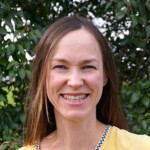Psoriasis: it’s time to scale up awareness
My brother used to call me a reptile. He’d looked up ‘psoriasis’ in the dictionary and found ‘a skin disease producing scales’. That sort of description is like gold dust to a young boy keen to insult his little sister. I retaliated by calling him ‘Borbis’, or ‘Borb’ for short. This made-up name annoyed him no end, but I think it was pretty kind of me to tease him with a word completely unrelated to his health complaints.
Differences are what makes us individuals, but they can also be the subject of unwanted attention and criticism. If we have never seen something before, such as a red, scaly patch on someone’s skin, we are more likely to stare at it and, potentially, comment on it. I remember a few years ago asking my friend Paul if he’d been painting at the weekend when he turned up for a run in shorts with white patches on his legs. It turned out he had psoriasis too, but his had silvery white scales whereas mine was mostly red. I didn’t know it could look like that. I’d never met anyone else with it.
The media is hugely influential when it comes to us accepting something as normal, or at least not unusual. The more we see different disabilities or health conditions, the more we get used to those differences and can focus on the person within. Disabled TV presenters like Lucy Martin, Nikki Foxand Ade Adepitan have done a great job of promoting their ability, rather than their disability, to the nation. But it is still rare to see anyone on TV with a skin condition. Maybe it’s because 14% of people say they feel uncomfortable seeing someone with a skin condition or scar. Maybe it’s because many people with a skin condition feel too embarrassed for such public appearances. Or maybe it’s the wonders of TV makeup. But around 1.8 million people in the UK have psoriasis. If you add in all the people with acne, birthmarks, eczema, rosacea, vitiligo, etc., the number is much higher. I can’t help but think that if these people were better represented in the media – including in children’s TV – the stigma surrounding skin conditions would lessen, and people would feel more comfortable in their skin.
For a more reliable description of psoriasis than my brother’s dictionary, check out the International Federation of Psoriasis Associations website, where you can also find out more information about today, World Psoriasis Day.
(And in case you are wondering, my brother has outgrown his cruel streak and is quite nice to me now. Occasionally, I still call him Borbis.)


